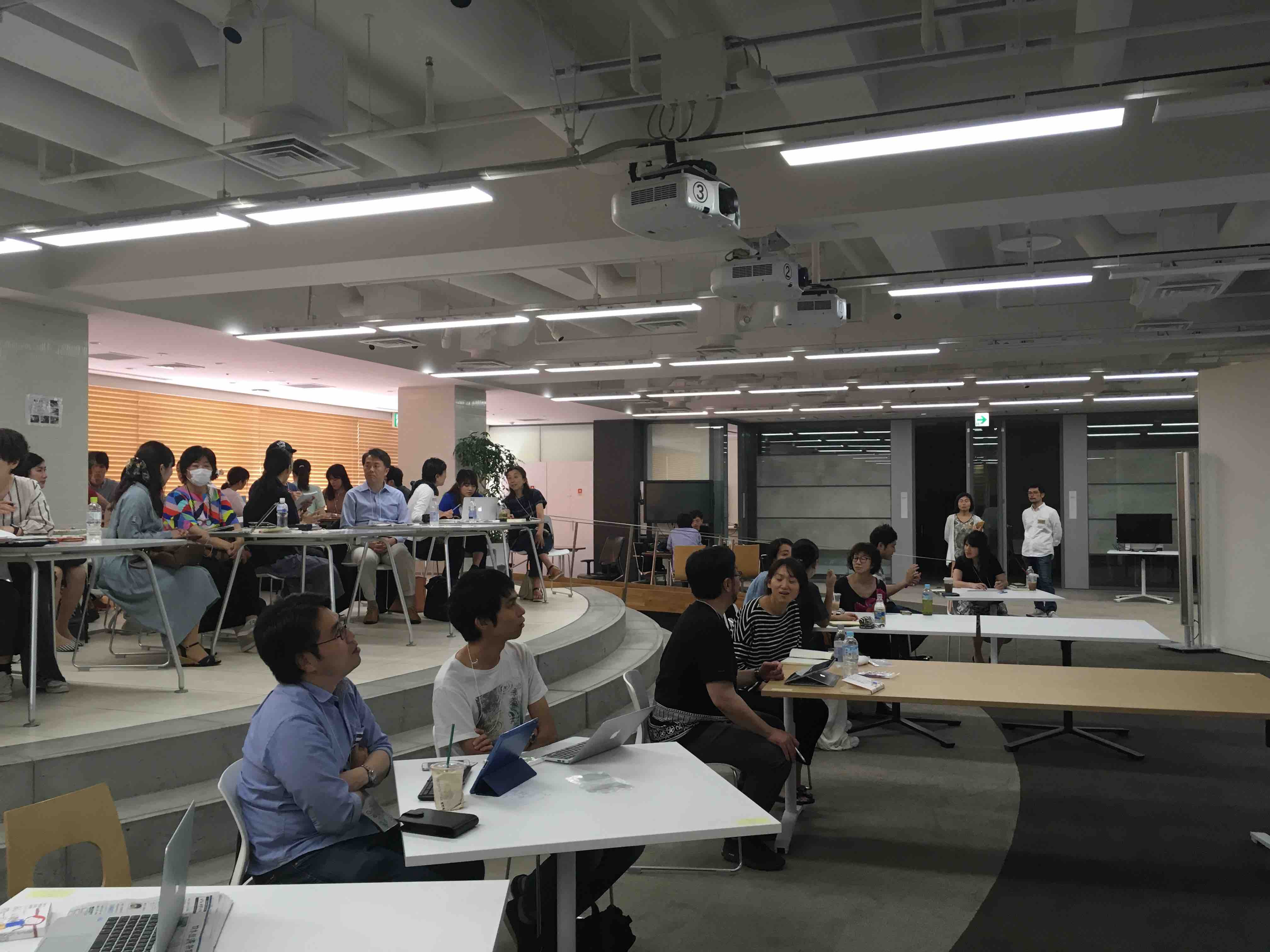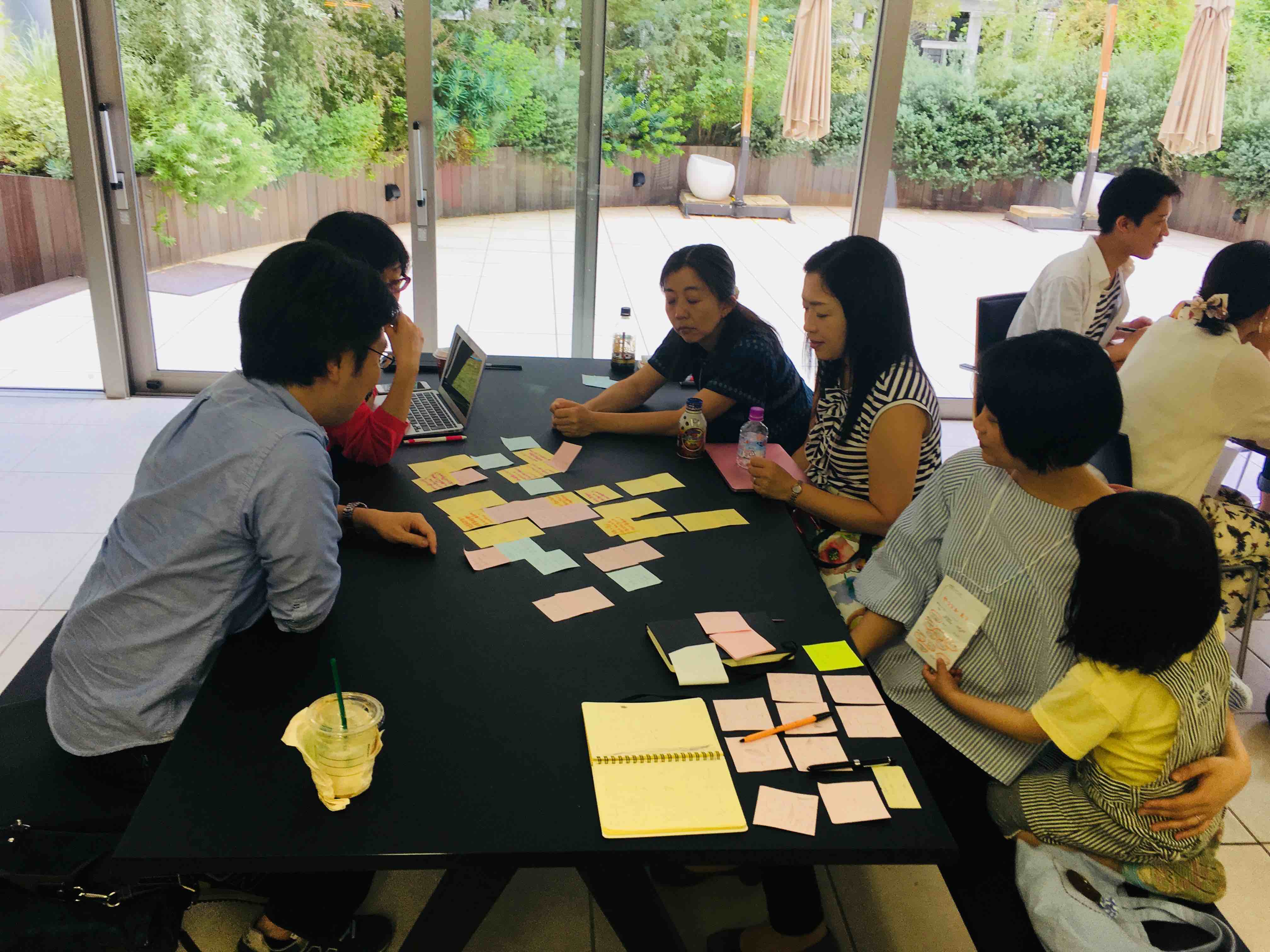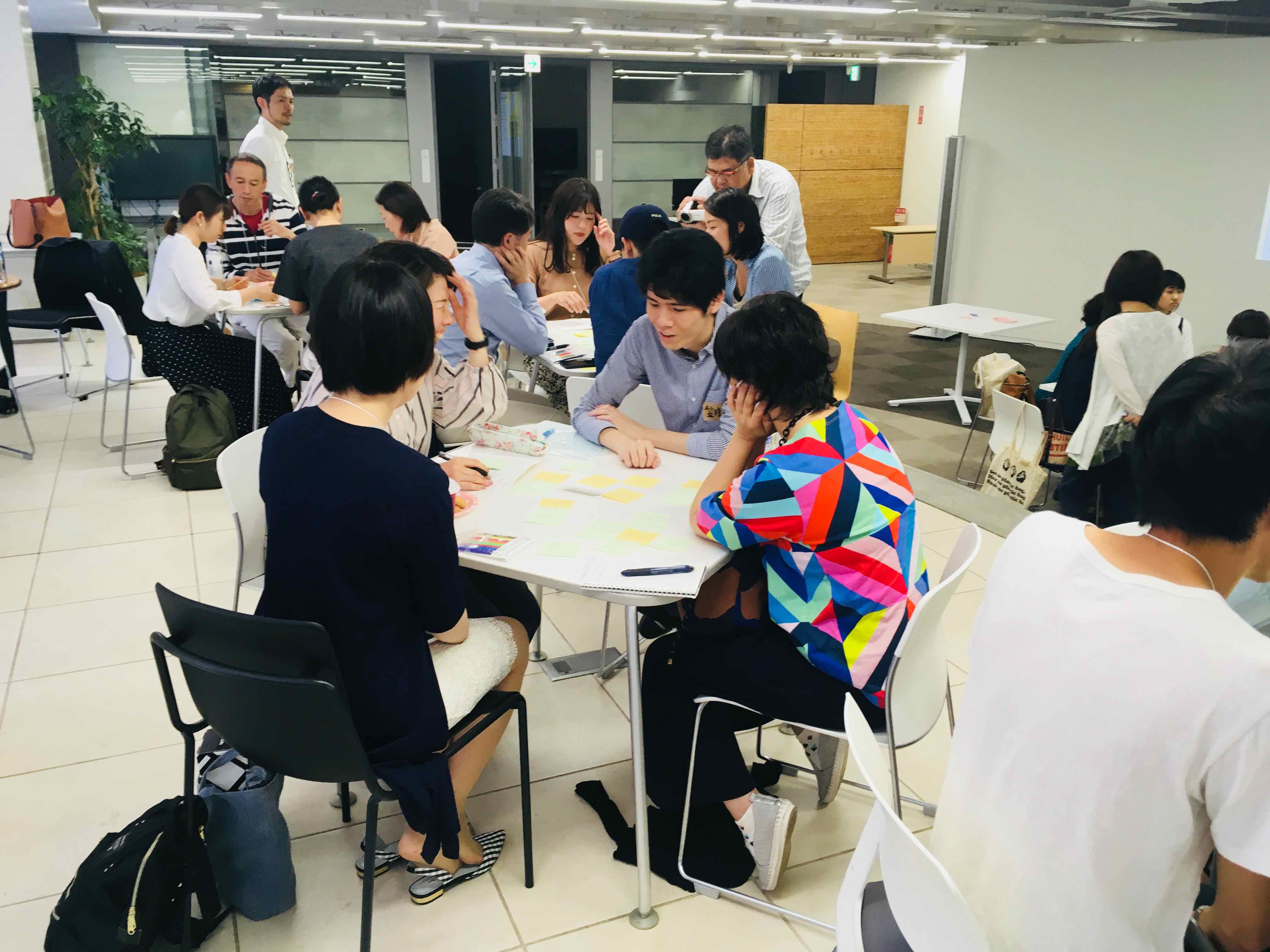We held an event “not Divide but Share” – Education in Sweden Vol.1: Entrepreneur spirit education from pre-school” on May 19th, 2018 at KOKUYO Studio in Shinagawa, Tokyo.
About 40 people gathered at this event, the quarter of them were working at education-related jobs, and others included people who are parenting or working in HR. Furthermore, a third of them had been to Sweden and the quarters of them were entrepreneur.
What comes to your mind when hearing “Entrepreneurship spirit education from pre-school”?
We started the workshop with the question above to clarify what kind of image we have about these words before listening to the presentation.
About “pre-school education”, following words were given: self-esteem; freely; respect one’s personality; elite; emotional education; discipline; consideration; active hearing. The word “entrepreneurship spirit education” reminded these words: imagination; open-minded; innovative and problem solving. The keyword “Act immediately” was given in both.

Top performer in EU innovation score board: Sweden in some figures
Then, as a overview of a country, we showed some figures about Sweden from the view of work style, sustainability and entrepreneurship. Here are some examples:
・The working time is 37 hours per week. They even aim 30 hours/week
・The share of renewable energy reaches 52%
・More than 99% of household waste is recycled
・Ranked #1 of European Innovation Scoreboard 2017
・The corporate tax rate is 22%
・Over 95% of the population having access to internet
“Entrepreneurship is the individual’s ability to translate ideas into action” -the Ministry of education in Finland–
Now going to the presentation by Mr. Kazuhiko Kawasaki, who does research about entrepreneurship spirit education of Nordic countries. Firstly, he introduced a definition of entrepreneurship spirit citing a passage from the Ministry of education in Finland;
“Entrepreneurship is the individual’s ability to translate ideas into action.”
It means that entrepreneurship spirit means not only coming up to idea but also transforming the idea into their action.

So, what kind of education is needed from the childhood for nurturing “entrepreneurship spirit”? What is it different from “entrepreneur education”?
This is what Mr. Kawasaki pointed out:
- External entrepreneurial skill means the skill of producing goods and services and giving a new added value to them.
- Internal entrepreneurial skill means the mind or attitude like creativity, self-efficiency, flexibility, active, courage, initiative, risk management, direction, corporation, and motivation.
He also mentioned unique characteristics of children with internal entrepreneurial skills as follows:
– Creative and courageous
– Having a clear sense of purpose and open-minded
– Cooperative, having a strong sense of responsibility and perseverant
– Having confidence and getting along with other children.
“Entrepreneurial education” even mentioned in National Compulsory Curriculum for school and preschool
What is focused when nurturing internal entrepreneurial spirit is 1) letting them think and judge by themselves, 2) valuing their motivation to learn and 3) not dividing what they learn and what is out there in the real world. In Swedish national compulsory curriculum for school and preschool, it is explicit about developing children’s attitude that promotes entrepreneurship.
Mr. Kawasaki also introduced some cases about nurturing entrepreneurship in pre-school. What impressed us most was the case about Helsingborg, Sweden.
In Helsingborg, they have a long-term vision named Helsingborg 2035: “Helsingborg will be the creative, vibrant, united, global and balanced city -pulsing with life – for both people and businesses.”

Furthermore, he introduced a practice case at pre-school in Helsingborg, a collaboration project between a Japanese Kindergarten and a Finnish Kindergarten, and so on.

Group work to post questions
After presentation by Mr. Kawasaki and other guests, we had a Fika, a Swedish coffee break, and went on to a group work.
Firstly, the participants wrote up some questions which came up to their mind after hearing the previous presentation. And then, they shared their questions in the group, prioritized the questions, and asked the questions to Mr. Kawasaki.
Here are some of the questions raised:
・How do they draw an educational vision in Sweden?
・How is the process of educational reform in Sweden and why they reached the consensus that entrepreneurship education in pre-school is important?
・How does the educational reform influence children’s attitude or mind in Sweden?
・How are they nurtured, the creativity and the internal entrepreneurial spirit?
・What is the difference of parents’ view toward education between Japan and Sweden?
・What are the good points of Japanese education system compared to Swedish? How do they teach the basic academic skills like reading, writing and arithmetic in Sweden?

– Feedback from participants (abstract)-
・What impressed me most was it has a value just being curious and vibrant.
・I’ll try to use Do Something Different methods.
・I had a great time talking with many people from various professional backgrounds and experiences. I could expand my horizon by participating to this event since I have been working only as a nursery teacher and had no chance to talk with other professionals.
・At workshop, I was inspired by other people, who broadened my mind.
・I’d like to know how we can practice what we learn from Sweden in Japan.
・I’d like to know the correlation and the evidence of effects between pre-school education and entrepreneurship spirit.

